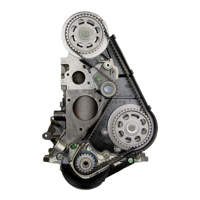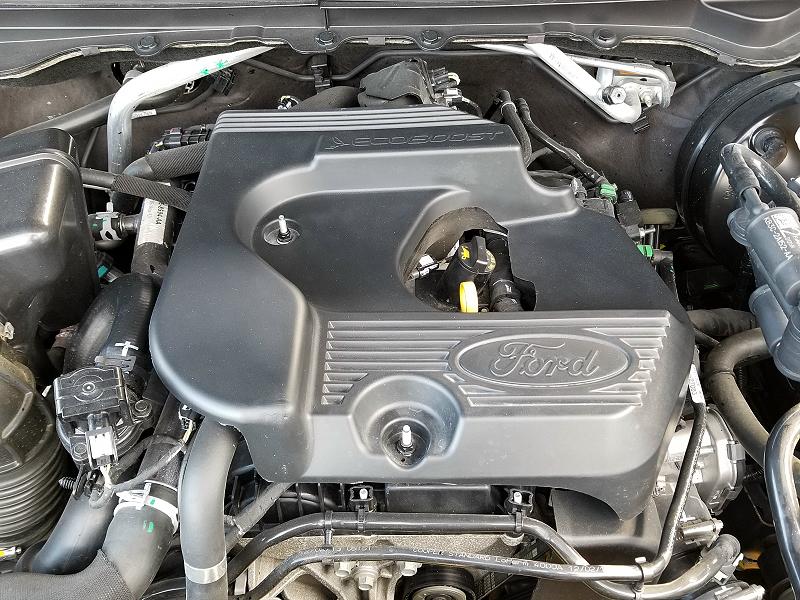How to Maintain and Optimize the 2.2 Ford Ranger Engine for Long-Lasting Performance
How to Maintain and Optimize the 2.2 Ford Ranger Engine for Long-Lasting Performance
Blog Article
Exactly How to Pick the Right Car Engine for Maximum Efficiency and Effectiveness
Choosing the suitable car engine to achieve an optimal equilibrium of efficiency and efficiency demands a nuanced understanding of various engine types and their certain attributes. Aspects such as engine variation, the number of cyndrical tubes, and fuel type play a crucial role in figuring out both power output and gas economic climate. While some might lean towards performance-driven alternatives, others may prioritize sustainability and effectiveness. Understanding these characteristics is important; nonetheless, the obstacle depends on straightening these qualities with your individual driving preferences and requirements. What factors to consider will inevitably assist your choice?
Comprehending Engine Kind
When choosing an auto, one of the most crucial components to think about is the engine type, which acts as the heart of the lorry. The engine kind significantly influences the automobile's general efficiency, long life, and viability for your driving requirements. There are mainly three engine types to consider: internal combustion engines (ICE), hybrid engines, and electrical engines.
Internal burning engines continue to be one of the most typical, running on gas or diesel. They are understood for their power and velocity, making them ideal for performance-oriented vehicles. Nevertheless, they might drop brief in fuel effectiveness and environmental impact.
Hybrid engines incorporate an inner burning engine with an electric motor, offering an equilibrium in between efficiency and fuel economic climate. They are significantly popular for vehicle drivers looking for reduced exhausts while still providing appropriate power.
Electric engines, powered completely by batteries, are acquiring traction because of their ecological benefits and reduced running costs. They provide instantaneous torque and a peaceful driving experience, making them suitable for metropolitan travelling.

Efficiency vs. Efficiency
Choosing the appropriate engine kind includes considering the trade-offs between efficiency and effectiveness. Efficiency typically describes how well an engine can deliver power and acceleration, which is usually related to bigger variation engines or those with turbocharging capacities. These engines usually give exciting driving experiences and fast response times, making them prominent amongst lovers.
On the other hand, performance focuses on fuel economic situation and reduced emissions. Smaller sized engines, specifically those geared up with sophisticated technologies such as direct gas shot and variable shutoff timing, tend to supply better miles per gallon and decreased carbon impacts. While these engines may compromise some power contrasted to their bigger equivalents, they often stand out in everyday driving scenarios where high performance is not always needed.
Ultimately, the choice between performance and performance rest on individual priorities. A motorist who values spirited driving might prioritize a high-performance engine, while someone seeking cost-efficient commuting might lean towards a reliable option. Comprehending these trade-offs is vital for making an educated choice that aligns with your driving needs and way of living, making certain that the picked engine kind enhances your assumptions for both performance and efficiency.
Key Specifications to Consider
Recognizing vital requirements is vital for making a notified decision about the appropriate vehicle engine. When choosing an engine, several essential aspects call for factor to consider to Find Out More make sure optimal performance and performance.
It indicates the complete quantity of the engine's cyndrical tubes and generally correlates with power outcome; larger variations typically generate more power. Engines with even more cylinders can supply smoother procedure and higher power, while smaller sized configurations can improve gas efficiency.
In addition, the engine's setup, whether inline, V-type, or rotating, influences the total design and performance characteristics of the lorry - 2.2 ford ranger engine. Turbocharging and supercharging modern technologies ought to also be examined; these boost an engine's power outcome without dramatically raising its dimension, hence improving efficiency
Fuel type is an additional vital factor to consider, as it impacts both performance and prices. The engine's compression proportion impacts performance and power shipment; a greater ratio generally leads to better efficiency, but may need superior gas. By very carefully analyzing these specifications, you can pick an engine that lines up with your performance and performance goals.
Evaluating Driving Needs
Evaluating driving needs is a basic action in establishing the right automobile engine for your way of life and usage patterns. Begin by evaluating your everyday driving practices, consisting of the regularity and duration of trips. A smaller sized engine with great fuel efficiency might be sufficient if your driving mainly consists of short commutes in urban environments. On the other hand, if you often embark on long-distance trips or require towing capacities, an extra powerful engine might be needed.
Think about the surface you commonly navigate. Hilly or sturdy landscapes may demand an engine official source with higher torque for far better performance. Additionally, review traveler and freight requirements; larger family members or those that transfer products may benefit from vehicles with increased power and capacity.
Diesel engines often provide exceptional torque and gas economic situation for much heavier automobiles, while gasoline engines may supply a smoother and quieter ride. Element in ecological considerations, as hybrid or electrical engines can supply an extra sustainable choice without sacrificing performance.
Future Patterns in Engine Innovation
As the vehicle market remains to evolve, developments in engine technology are leading the way for much more lasting and effective driving experiences. One significant fad is the change towards electrification, with hybrid and completely electric powertrains acquiring prestige. Automakers are spending heavily in battery innovation to enhance power density and lower charging times, inevitably enhancing the practicality of electrical cars (EVs)
An additional emerging fad is the advancement of hydrogen gas cell engines. 2.2 ford ranger engine. These systems provide the potential for zero-emission driving while supplying refueling times comparable to standard gasoline engines. Furthermore, developments in burning technology, such as variable compression proportions and improved turbocharging, are enhancing traditional interior burning engines for better effectiveness and efficiency
Digital integration is additionally a vital aspect of future engine innovation. The execution of man-made knowledge and artificial intelligence enables real-time information analysis, allowing smarter engine management systems that adjust to driving conditions and boost fuel effectiveness.

Final Thought
Finally, selecting the appropriate auto engine demands a detailed examination of different variables, including engine kind, performance demands, and effectiveness objectives. By recognizing the differences in between various engine kinds and thinking about crucial specs, people can straighten their choices with certain driving needs. As developments in engine innovation remain to arise, staying notified regarding future patterns will even try these out more improve decision-making, eventually causing an automobile that stabilizes performance and fuel efficiency efficiently.
Selecting the appropriate vehicle engine to achieve an optimal balance of performance and efficiency necessitates a nuanced understanding of various engine kinds and their specific features. There are primarily three engine types to think about: interior combustion engines (ICE), hybrid engines, and electric engines.
Efficiency usually refers to how well an engine can provide power and acceleration, which is often associated with bigger displacement engines or those with turbocharging capabilities. Diesel engines often supply exceptional torque and fuel economic climate for larger automobiles, while gasoline engines might supply a smoother and quieter trip.In verdict, choosing the appropriate auto engine demands a detailed assessment of numerous factors, consisting of engine type, efficiency requirements, and efficiency objectives.
Report this page